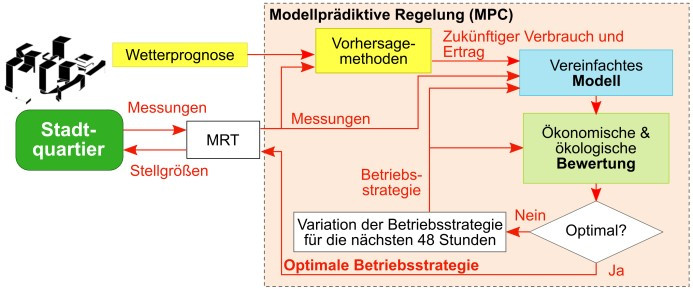COMET-Programme
The strategic objectives of COMET are: developing new expertise by initiating and supporting long-term research co-operations between science and industry in top-level research, and extablishing and securing the technological leadership of companies. By advancing and bundling exting strengths and by integrating international research expertise Austria is to be strengthened as a research location for the long term.
The competence center BEST - Bioenergy and Sustainable Technologies GmbH is funded by BMIMI, BMWET and the federal states Vienna, Lower Austria und Styria within the scope of COMET - Competence Centers for Excellent Technologies. The program COMET is managed by the FFG.
As a link between academic research and industrial technology development, our vision is to develop and demonstrate sustainable and circular biorefinery processes and technologies for producing green gases, green liquid fuels, and green products, all of which will support the transition to a climate-neutral, zero-fossil-carbon economy. Consequently, the resource basis will be extended to include organic residues, wastes, and carbon dioxide. Conversion technologies will be enhanced or redesigned to ensure their efficient and economical operation, and to allow the value cycles based on new feedstocks to be integrated into the system. By using our excellent experimental facilities, ranging from lab to pilot and demonstration scale plants, our goal is to conduct applied research of the highest scientific quality.
We apply advanced digital methods for technology development, and for the basic automation, optimization, and monitoring of the operation of individual technologies and entire plants. With the help of holistic and technology-neutral planning tools, we ensure that biorefineries and energy supply technologies are optimally integrated into a sustainable, renewable energy system.
ÖKO-OPT-QUART
Economically optimized control and operating mode of complex energy networks of future city districts.
The focus on a reasonable combination of different and if possible renewable energy sources in future city district is increasing. However, the resulting energy networks are getting more and more complex. This increase of complexity has its origin mainly due to the dependency of renewable energy production on non-controllable, varying environ-mental conditions (e.g. wind or sunlight), the increasing decentralization and the growing demand for efficiency. However, currently applied control methods are not yet capable of operating such complex systems reliably and efficiently. In order to develop suitable control strategies which would ensure a robust and efficient operating behaviour, detailed simulation models are required. Such models are currently only available to a limited extent due to the high level of complexity of the system.
In the project ÖKO-OPT-QUART a model predictive controller (MPC) was developed based on an energy-based and economic simulation model. The developed MPC was simulated for the planned city districts Q1 and Q4 of the future urban area Graz-Reininghaus in Graz, Austria. This approach allowed for clearly identifying and reliably evaluating the investment, installation and operating mode strategy with the greatest economic benefit. In addition to the methodical findings, a secondary benefit was generated. The evaluation of the developments based on real boundary conditions, made it possible to directly integrate the acquired knowledge into the real development of the city districts.
In the project different models (energy-based, economic and control-oriented) for complex energy networks in city districts were developed. The energy-based modelling describes both the thermal as well as the electrical behaviour of the urban energy network in a detailed way. The economic modelling allows a continuous economical evaluation of the operating mode, by providing the possibility to track and analyse the emerging costs. The control-oriented model either consist of a conventional control strategy or the developed MPC (see Fig. 1) for operating complex energy networks in city districts. This makes it possible to compare the efficiency of both control strategies by comprehensive simulation studies.
Afterwards, the energy-based, economic and control-oriented models were combined to an interdisciplinary overall model (co-simulation), which allowed the simulation of various control strategies for the given city districts und various boundary conditions.
Due to this overall model, it was possible for the first time to realistically quantify the economic benefits of an MPC for the operating mode of energy networks. Furthermore, a modular methodology for the systematic design of an MPC for complex energy networks was developed.
Impact and effects
With the aid of the developed modular MPC a total annual cost savings potential of up to 6% (75 k€) was achieved for the considered city districts.
The modular implementation of the MPC ensures an easy adaption to other city districts and energy configurations.
Partner
- TU Graz - Institute of Thermal Engineering, Austria
- AEE INTEC, Austria
- TB-STARCHEL GmbH, Austria
- PMC GmbH, Austria
- ISWAT GmbH, Austria
Contact

Markus GÖLLES
markus.goelles@best-research.eu
